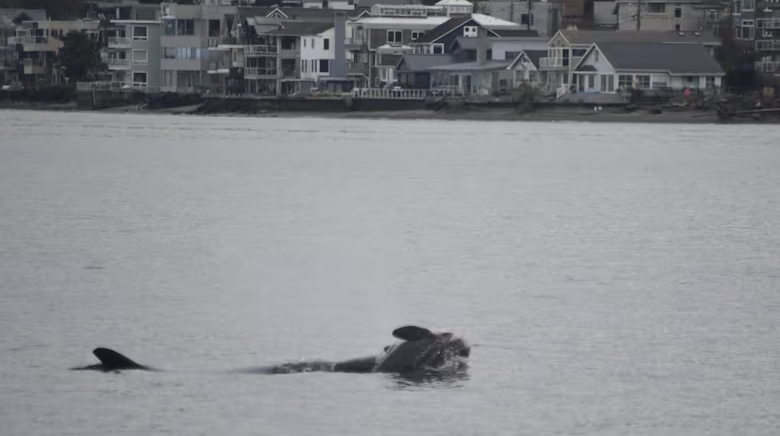Famous Mother Orca Tahlequah Seen Carrying Second Dead Calf in Emotional Display
Olivia Singh
1/17/20252 min read


Tahlequah, a southern resident killer whale known worldwide for carrying her dead calf for 17 days in 2018, has been seen once again grieving in the waters off Victoria, B.C. The mother orca was spotted on Jan. 10 carrying the carcass of her newborn calf, more than two weeks after it died.
The Center for Whale Research, based in Washington state, confirmed the sighting and said the 25-year-old whale was swimming near another J pod member between Vancouver Island and San Juan Island. Observers noted Tahlequah appeared to be attempting to keep the calf's body from sinking.
A Second Loss
Tahlequah’s calf, a female, was first seen alive on Dec. 21 but was reported dead by New Year’s Eve. The grieving mother was then observed on Jan. 1 pushing the calf’s remains, draped over her head, as she swam.
Researchers noted that this marks the second documented loss for Tahlequah, who has now lost two of her four known calves.
Signs of Grief
Experts believe the behavior is an expression of grief. In a news conference after the initial Jan. 1 sighting, Brad Hanson, a research scientist with the National Oceanic and Atmospheric Administration (NOAA), explained that carrying the calf creates significant physical strain for the whale.
"That essentially results in a lot more drag as she swims, and so her energy expenditure is going to be fairly significant," Hanson said.
He also pointed out that the behavior could interfere with foraging, especially during winter months when fish, particularly Chinook salmon — a critical food source for southern resident killer whales — are less abundant.
Concerns for Tahlequah’s Health
The energy required to carry the calf is likely immense, raising concerns about Tahlequah’s health. Researchers emphasized the challenges she faces as she mourns while navigating limited food availability.
Despite these concerns, there was positive news from the J pod. Another newborn, believed to be the offspring of J41, was also spotted on Jan. 10 and appeared to be in good health.
A Continued Struggle for Southern Residents
Tahlequah’s repeated losses highlight the ongoing challenges faced by southern resident killer whales, a critically endangered population with only 75 individuals remaining. Threats such as declining salmon populations, pollution, and vessel noise continue to impact the survival and reproduction of these iconic whales.
The Center for Whale Research will continue to monitor J35 and her pod as they navigate these challenges in their shared habitat of the Pacific Northwest.
News
Stay updated with the latest BC news stories, subscribe to our newsletter today.
SUBSCRIBE
© 2025 Innovatory Labs Inc.. All rights reserved.
LINKS
